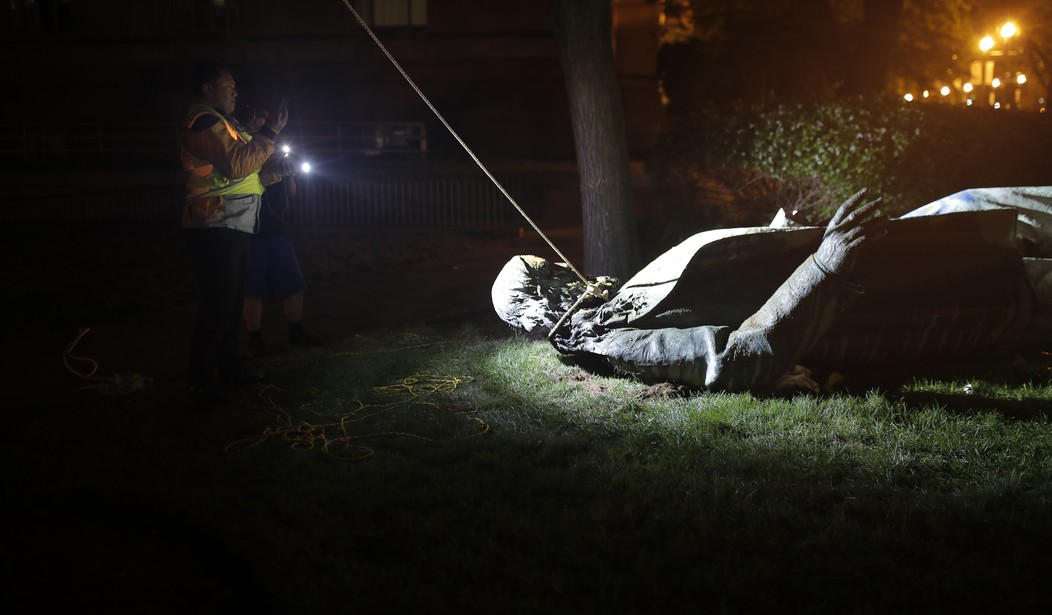The Manchurian Candidate movie, based on a novel by Richard Condon, was once denounced by a British critic as a “cheaply paranoid fantasy.” Roger Ebert, reviewing the 1962 movie, acknowledged that it touched a chord despite being unrealistic:
The title of “The Manchurian Candidate” has entered everyday speech as shorthand for a brainwashed sleeper…That such programming is impossible has not prevented it from being absorbed as fact.
But if subliminal programming were really impossible, then why did it evoke such a strong reaction in 1962? We’re still gripped by paranoia. Forget the 20th century; hardly a day in 2021 passes without some new denunciation or endorsement of anti-racism or anti-bias training as the new brainwashing.
The whole premise of anti-unconscious-bias training is that large numbers of Americans are already brainwashed by a flawed culture; they’re unconscious bigots who need to be deprogrammed. “Many organizations have considered adopting unconscious-bias training to address their roles in perpetuating racism and inequality. This kind of training seeks to make participants aware of their biases, in a blame-free manner.” People are already brainwashed; it just needs to be turned left-side up.
Since a disease of the unconscious must be cured at the same level. Attitude training is a battle for the subliminal mind of a civilization. Although the kind of mind control depicted in The Manchurian Candidate may be unrealistic, the importance of controlling the unconscious foundations of a society has been long understood and ardently pursued by devotees of power. Schopenhauer explained that the most important components of a civilization are its subconscious assumptions.
Religion is the metaphysics of the masses … Just as they have popular poetry, and the popular wisdom of proverbs, so they must have popular metaphysics too: for mankind absolutely needs an interpretation of life; and this, again, must be suited to popular comprehension.
It’s all the stuff you believe in without knowing why—all the stuff you would die for. The leader who can control the unconscious values of a society wields more power than the cinematic mind control over an individual political actor. This explains why the first priority of ambitious ideologies is to win the battle of the unconscious, triumph in the war of the ghosts by replacing the “religion” of the society they would subvert with one of their own. Nazi Germany wanted armies but first they needed ghosts, terming this Kirchenkampf or church battle, aimed at the destruction of any form of scruple to obeying the diktat of the Cause.
Nazism wanted to transform the subjective consciousness of the German people – their attitudes, values, and mentalities – into a single-minded, obedient Volksgmeinschaft or “National People’s Community”. … Himmler saw the main task of his Schutzstaffel (SS) organization to be that of “acting as the vanguard in overcoming Christianity and restoring a ‘Germanic’ way of living” in order to prepare for the coming conflict between “humans and subhumans”:
The idea was not original to the Nazis. The Bolsheviks had been trying to wipe out the Russian Orthodox church since 1929, for much the same reason. “In 1928 the Soviet People’s Commissar for Education, Anatoly Lunacharsky, pressured by leftist Marxists, agreed to an entirely anti-religious education system from the first grade up. … This led to the setting-up of anti-religious sections at all research and higher-education teaching institutions. A special anti-religious faculty was instituted at the Institute of Red Professors in 1929.”
In the hostile climate of the time, believers were named and exposed in the atheist press. Those who attended church at Easter could be reported by name. Such reporting could precede further attacks against them. Students at public schools could be asked to write on the blackboard the names of fellow students that had been attending religious services. Students were given homework assignments to try to convert a member of their family to atheism.
After the Second World War, the fight for the unconscious continued unabated for the Germans, at least in the Soviet Zone, through de-Nazification ironically carried out by the NKVD. To a surprising extent, the secret history of the 20th century is one of the struggles for the subconscious minds of populations. Far from being a paranoid fantasy, unconscious reprogramming constitutes the deepest form of war. Its importance was pithily expressed by the recent movie Monuments Men. “You can wipe out an entire generation, you can burn their homes to the ground and somehow they’ll still find their way back. But if you destroy their history, you destroy their achievements and it’s as if they never existed.”
Perhaps the great wisdom of the establishment clause lies in realizing that our deepest beliefs, our explanations for life’s meaning, far from being irrelevant topics, represent our center of gravity—that religion by any name, even under the disguise of atheism, is too dangerous to ever be state-sponsored or compulsory.
Maybe totalitarians don’t believe in God but they sure act like they’re afraid of Him. Everyone is against unconscious bias unless, of course, it’s their own.
***
The Tyranny of Big Tech by Josh Hawley. Amassing unimaginable amounts of personal data, giants like Google, Facebook, Amazon, and Apple—once symbols of American ingenuity and freedom—have become a techno-oligarchy with overwhelming economic and political power.










Join the conversation as a VIP Member